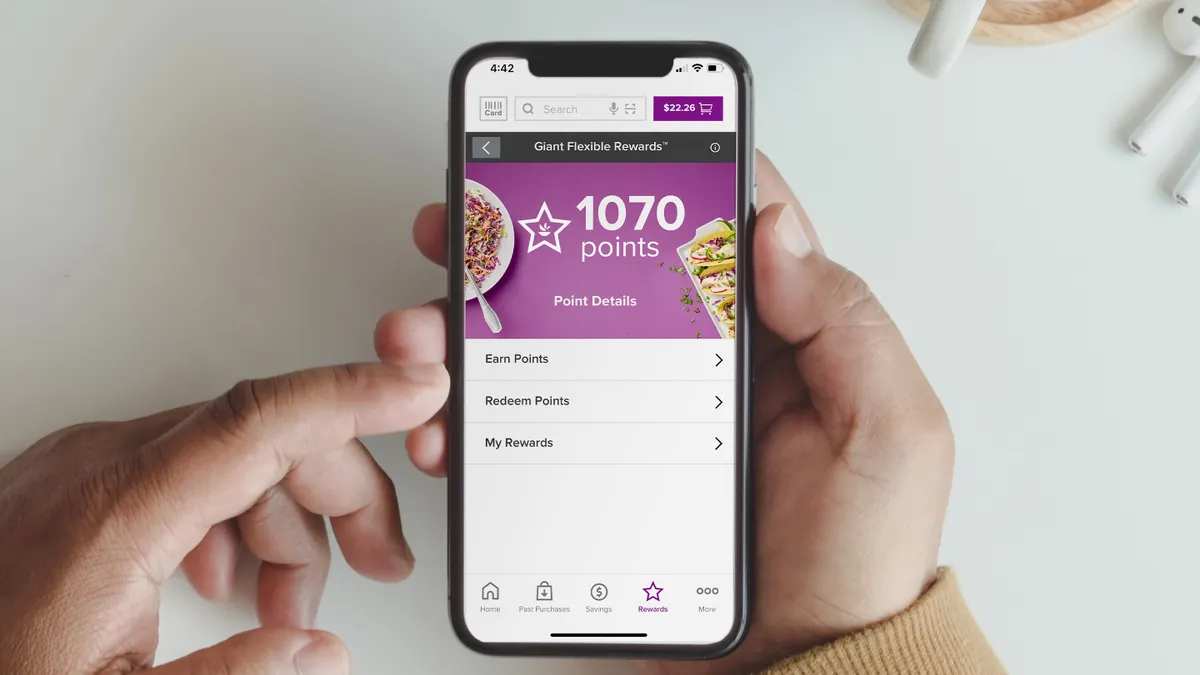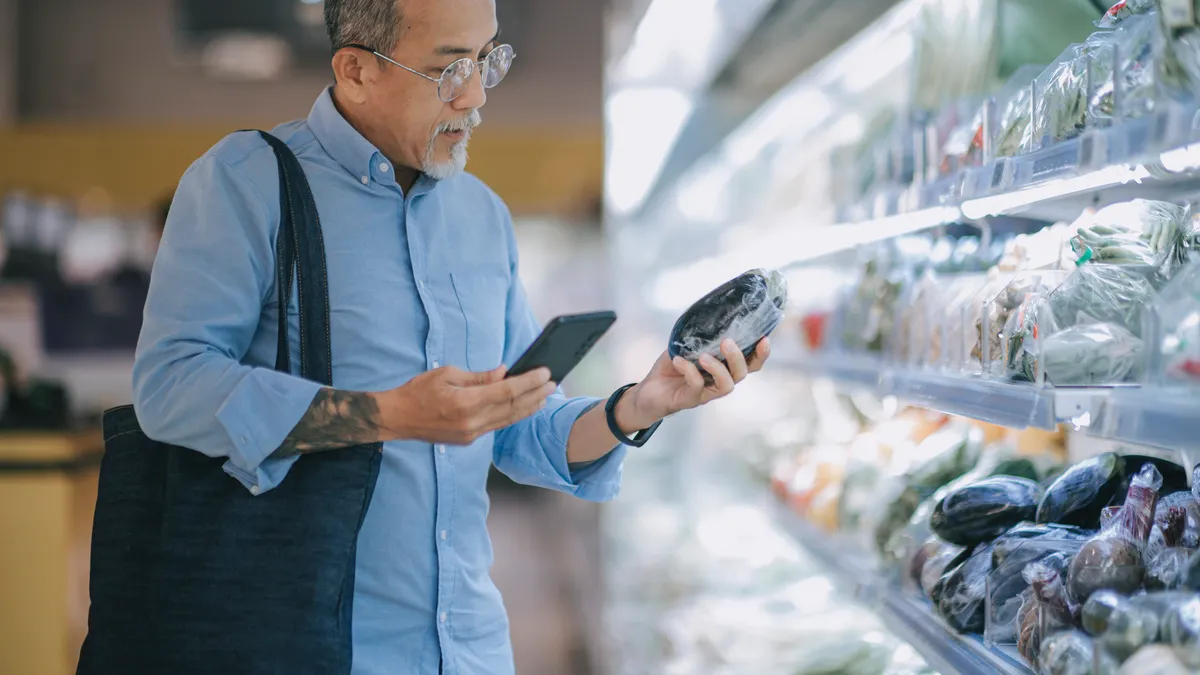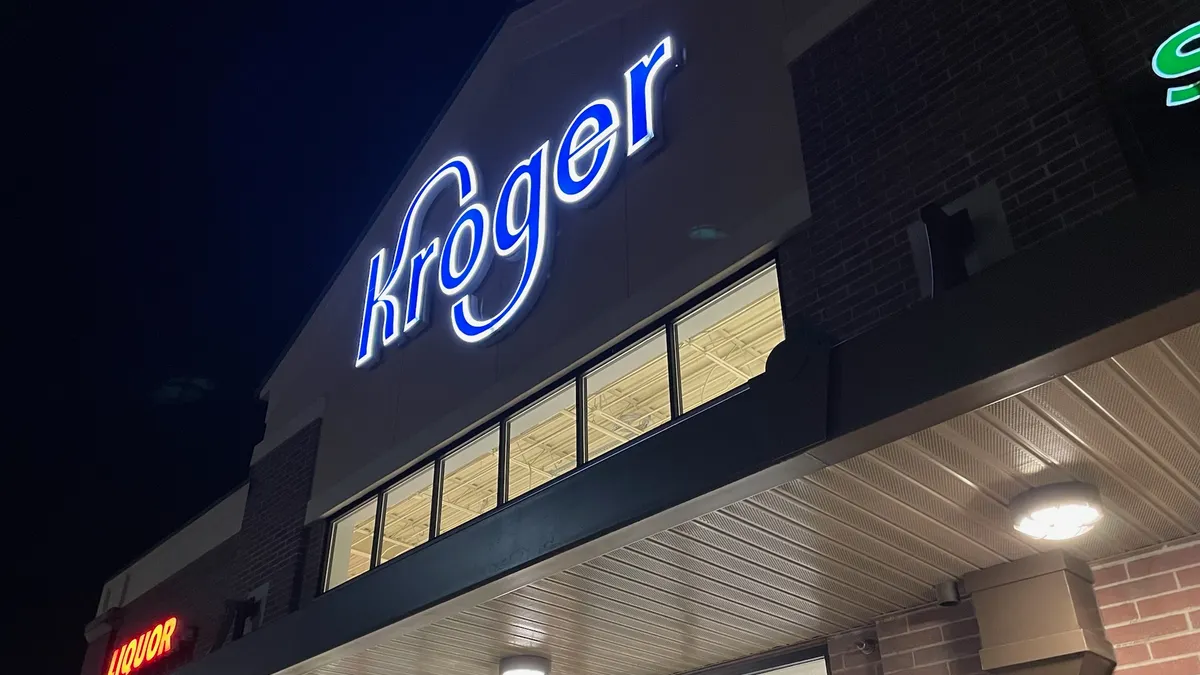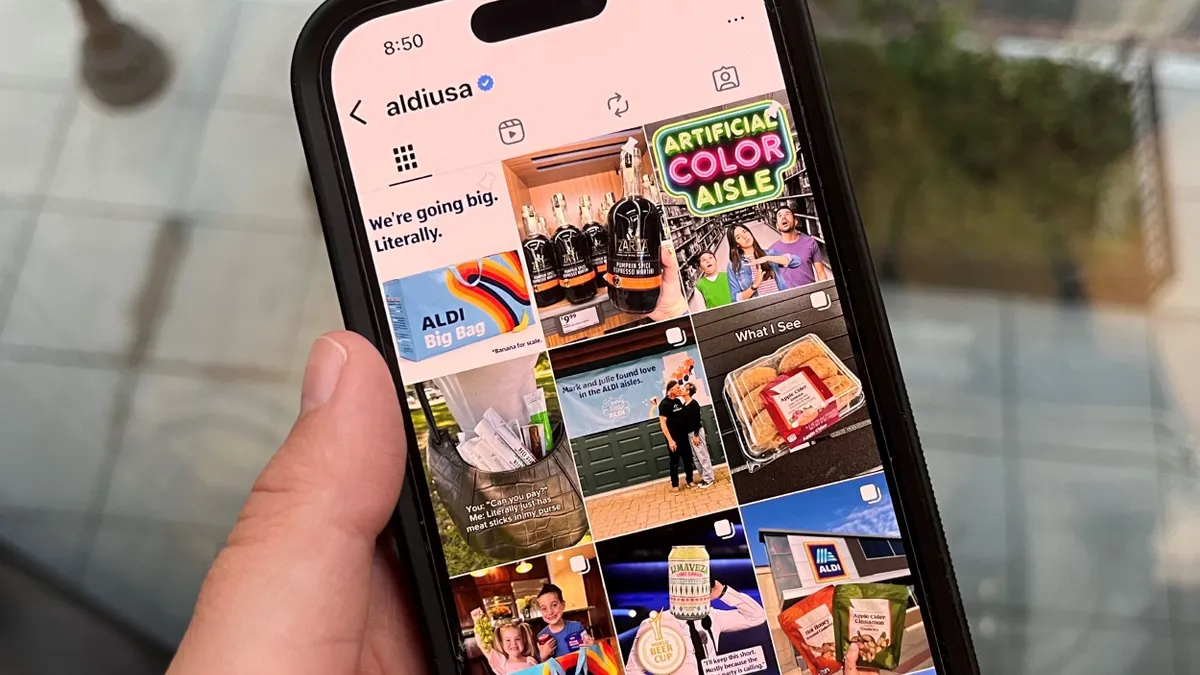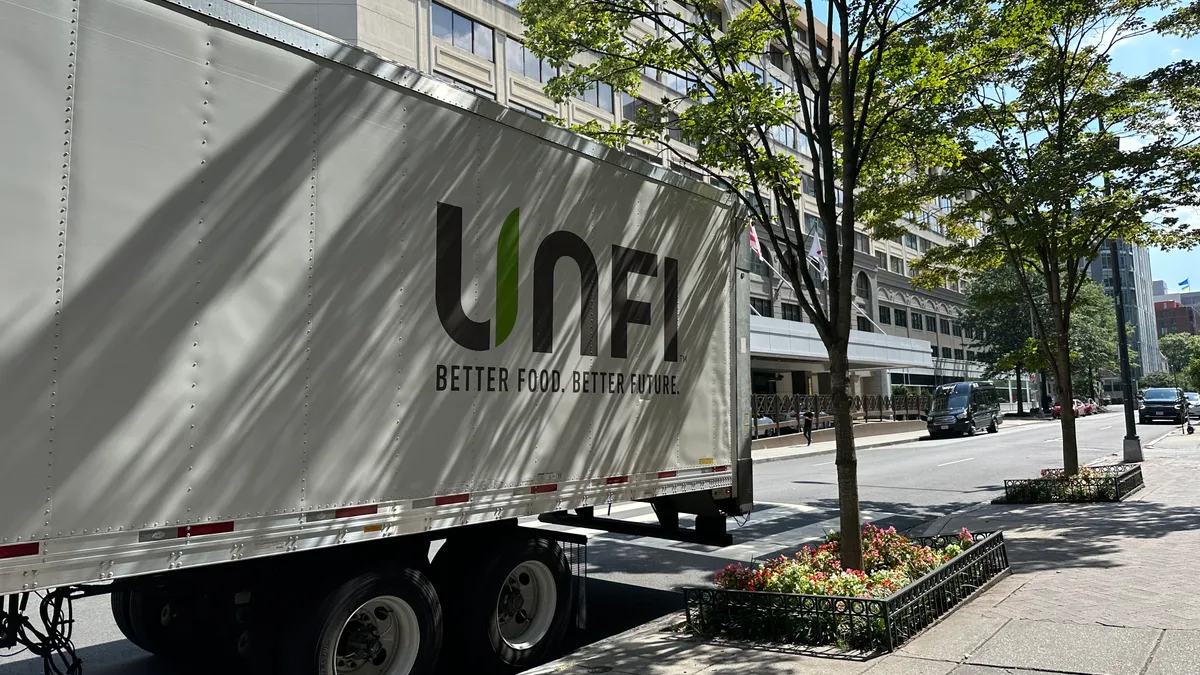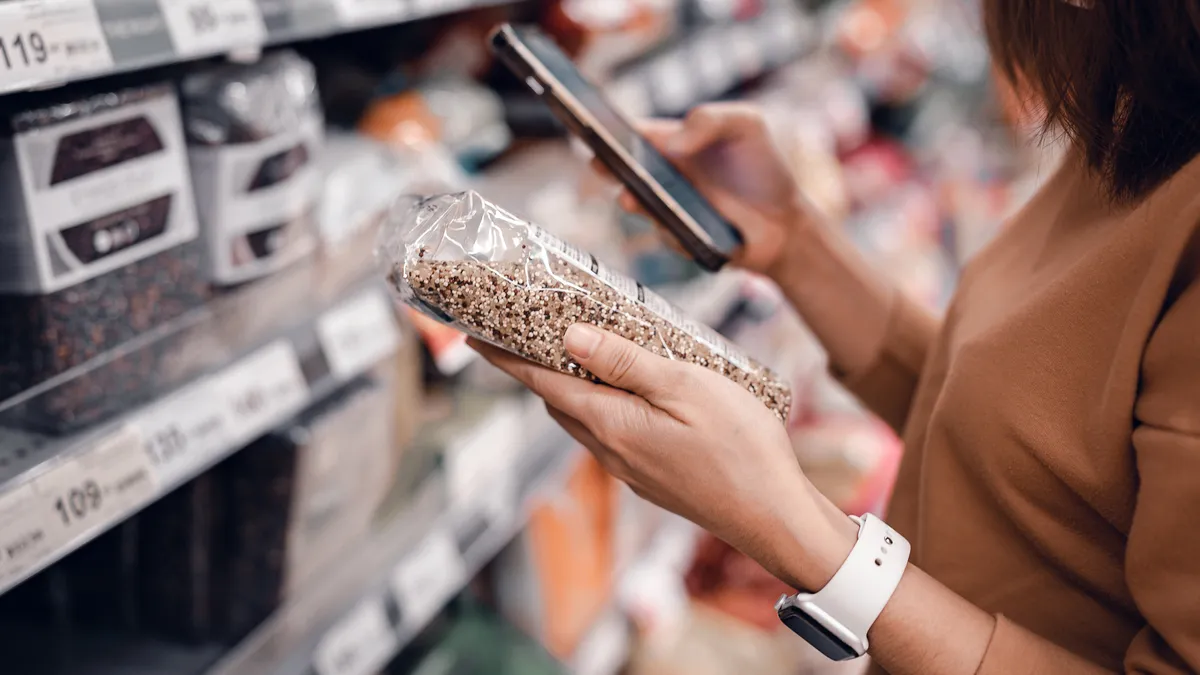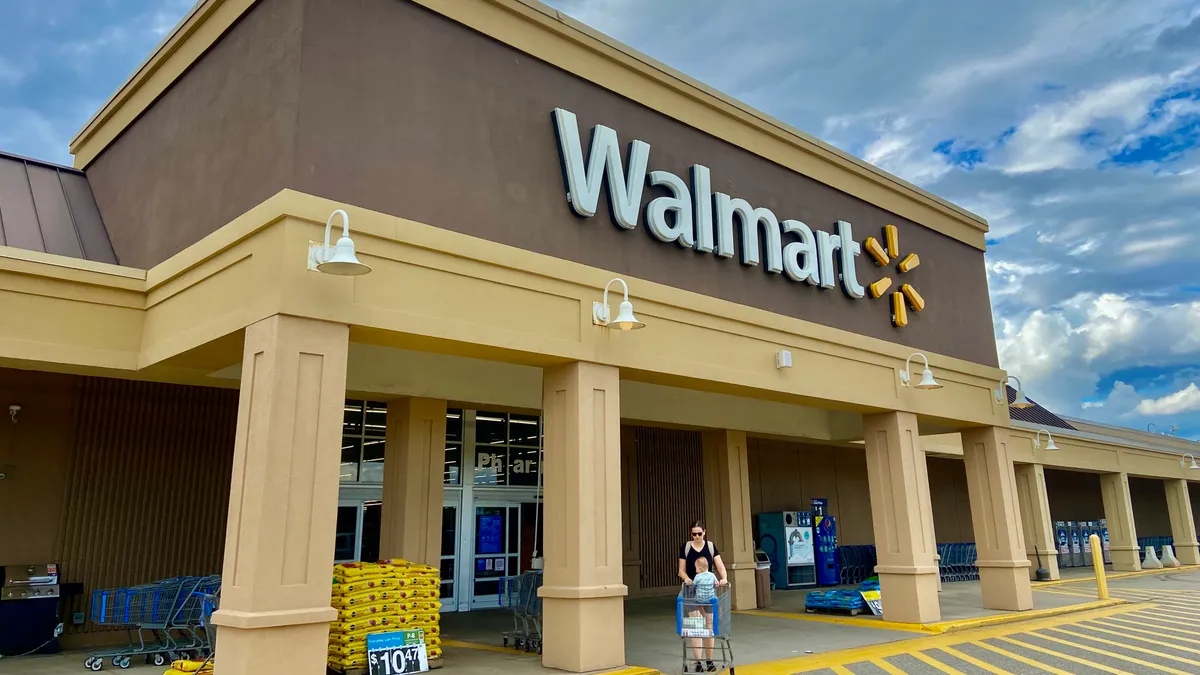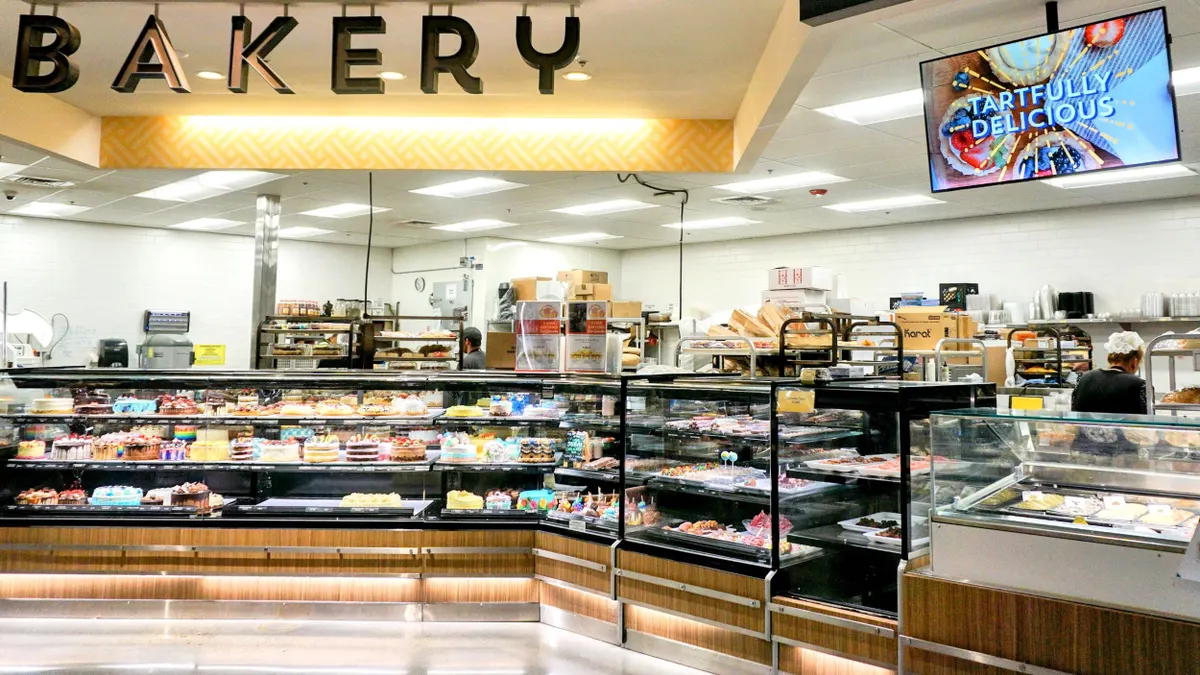This article is the third in a four-part series exploring the opportunities and challenges retailers face in center store. On Thursday, Grocery Dive will explore some of the ways retailers are updating their center store layouts. The full series is posted here.
Grocery stores and hotels might at first glance seem to have little in common. But for Ryan Draude, the similarities are crystal clear.
Just as hotels offer rewards to people who regularly stay with them and take steps to recognize guests when they walk in, Draude, head of loyalty and digital for Giant Food, thinks one of the most effective ways food retailers can build ties with their customers is by turning grocery shopping into a personalized experience built around their needs and preferences.
To accomplish this for the Ahold Delhaize-owned grocery chain, Draude is looking for inspiration to his former role overseeing the frequent-guest program operated by lodging chain Choice Hotels International. Among his key takeaways from that job is that customers want to feel that a merchant appreciates them and is committed to helping them get what they want — and won't hesitate to leave if they spot a better option, Draude said.
For now, Draude is focused on using Giant Food's e-commerce program, Giant Flexible Rewards, to deliver personalized pricing, product recommendations and rewards to customers that also relate to their experience in the chain's stores. Later, the company may add technology to its locations that gives customers the ability to signal their presence in stores using a smartphone and then receive location-based promotions, he said.
"My biggest fear is if a grocery store opened up half a mile closer to my member's home than a Giant was, what are we doing [that is] so differentiated that would continue to make them drive that extra half a mile to go to our store?" Draude said.
Personalizing the center store
Giant Food is focusing on personalizing the shopping experience at a time when grocers are looking for strategies to maintain the momentum they have made connecting consumers with essential goods during the pandemic.
Findings from a poll of 1,000 consumers Grocery Dive recently conducted with market research firm Inmar Intelligence suggest that the grocery industry faces obstacles as it looks to convert customer relationships built in stores to online — especially where the center store sales that are key to grocers' bottom lines are concerned.
Three-quarters of participants in the survey said the center store is "absolutely" or "mostly" relevant to their shopping habits. But just 9% of respondents said they use their local grocery store's e-commerce service to shop this department, while more than nearly 70% indicated they turn to Amazon, Walmart, Sam's Club or Costco for their favorite center store staples.
Customization strategies built atop loyalty programs like the one Giant Food operates may hold at least part of the answer for grocers as they look to hold onto customers smitten by e-commerce, experts said. Grocers now have access to a variety of personalization tools, including customized coupons and promotions, shoppable recipes based on a customer's nutritional preferences and spending-related discounts. But retailers need to carefully test options and prioritize those that make it easy for shoppers to find their preferred products and also discover new items amid what can be an overwhelming center store assortment, sources noted.
Serving shoppers a selection of center store goods that they are likely to be interested in is critical to retaining their allegiance online and alleviating the "click and scroll fatigue" shoppers run into while online shopping, said Spencer Price, co-founder and CEO of Halla, a startup that specializes in grocery personalization technology.
"A process of elimination to some extent is one of the most important parts of personalization because you don't want to be inundated with tons and tons of products that you know you're never going to try or buy," said Price.
Using analytics to offer smart substitutions when items are out of stock is also essential to building relationships with consumers, said Sean Turner, co-founder and chief technology officer of Swiftly, a startup focused on digital loyalty technology. Earlier this year, Walmart introduced online shopping substitutions powered by artificial intelligence, boosting customer acceptance of those items above 95% as a result.
"It used to be personalization was just about 'how can I get shoppers products that they're interested in at a good price?'" but that has changed as retailers look to build deeper relationships with customers, said Turner. Now, he said, grocers face the tougher challenge of convincing people they understand their needs and are ready to meet them — without making them feel like just another customer.
Another factor behind the growing interest among grocers in developing personalized customer relationships is that shoppers themselves have an unprecedented ability to track prices, putting pressure on retailers to closely follow their competitors to ensure their customization strategies remain relevant, experts said.
"Whatever response you're going to take — whether it's a price change, whether it's an assortment shift, whether it's a new promotional cadence or approach — it all demands tracking your competition with much more granularity because that's what ultimately the shopper is able to do now," said Ben Reich, founder and CEO of Datasembly, a California-based company that gathers information from e-commerce sites for clients, including grocers, through a process known as web scraping.
Building a grocery store for every customer
While brick-and-mortar grocers have added shortcuts that help shoppers find relevant products in center store and other departments, they're only beginning to scratch the surface of what a truly personalized shopping experience can be, according to online grocers that specialize in this approach.
Because they don't have storied brands and physical locations to build awareness, e-grocers are focused on offering new customized shopping platforms built around advanced technology like machine learning.
"Based on what I know about you, based on what I know you'll buy [and] what you won't buy, I can build a specific grocery store" for every customer, said Abhi Ramesh, founder and CEO of e-grocer Misfits Market. "That power exists in the digital universe in a way that can never exist in person."
Ramesh's company, which started three years ago selling cosmetically defective produce, has since raised hundreds of millions of dollars to feed its ambition of becoming a full-fledged grocer. Every customer who opens Misfits Market's app sees a personalized assortment of foods determined by the company's in-house machine learning technology, and Ramesh wants to take that personalization to an even higher level.
"You're taking an amount of time that this customer is willing to spend on your site and you are maximizing the relevance of the product shown to that customer to maximize the possible basket that they will shop with you."

Pradeep Elankumaran
Co-founder and CEO, Farmstead
The company's goal, Ramesh said, is to only show customers items that might interest them and cut out all the products they're not likely to purchase. In addition to providing a "less mentally fatiguing" grocery-shopping experience, such a high degree of personalization can also help prevent food waste by enabling Misfits Market to precisely determine what it needs to keep in stock and when to bring it to its facilities, he said.
"Every off-the-shelf piece of technology and software that exists today is all designed for kind of the old-school model of buy from distributors, bring the same standard product into your warehouse, send it from the warehouse to the grocery store," said Ramesh. "There's very little machine learning, very little predictive algorithms built on top."
Given that an online shopping trip can take just a few minutes, California-based e-grocer Farmstead places a premium on only showing customers products they are likely to be interested in, said Pradeep Elankumaran, the company's co-founder and CEO.
"You're taking an amount of time that this customer is willing to spend on your site and you are maximizing the relevance of the product shown to that customer to maximize the possible basket that they will shop with you," Elankumaran said.
Farmstead, which also offers technology and dark store services to grocers, accomplishes this in part by encouraging customers to subscribe to the staple goods they always buy so they can use their time spent on the company's website or app to discover new items, he said.
"You can't have a high basket just by showing people the same things over and over," said Elankumaran. "It becomes especially important that you're showing people the right things that really resonate with them while also surfacing the things that they probably won't [otherwise] get to see, but surfacing it to them in a more relevant way to capture the thrill of the hunt, which is a very real thing."
High-touch doesn't have to be high-tech
Gary Hawkins, CEO of the Center for Advancing Retail & Technology, pointed out that personalization strategies don't have to be high-tech.
For example, a retailer could invite their best customers to bring knives to the meat department to be sharpened, Hawkins said. Another option would be to offer a customer who signs up for a loyalty program a tour of the store with a manager, he said.
"I've worked with retailers all over the world … and one of the things I found no matter what country I was in, no matter what culture I was in, [is that] we as human beings like to be recognized," Hawkins said.
Bob LaBonne Jr., president and CEO of LaBonne's Markets, a chain of four supermarkets in Connecticut, said one of the most effective ways to build bonds with customers is to give them a selection of treats — complete with a personalized letter from a store director — as a tangible show of gratitude. LaBonne's runs a points-based loyalty program that automatically sends customers coupons when they reach spending thresholds, but has discovered that giving people something they might not have bought is especially effective, LaBonne said.
LaBonne said he has found that distributing holiday gift baskets filled with items like nuts, snacks, olive oil and balsamic vinegar to especially loyal shoppers can go a long way toward making them feel special.
"Customers felt like we gave them a trip to Hawaii," he said.



